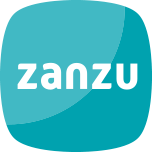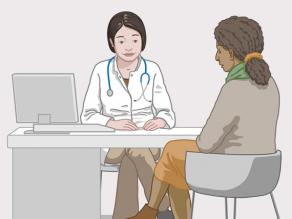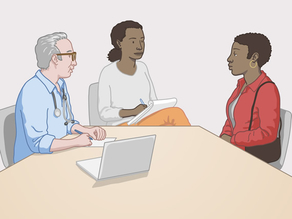Access to medical care
In Belgium there are many services and professionals that can help you if you need information about health, if you have a health problem or if you are in an emergency situation.
How can I pay for health care?
Health care is expensive. If you are legally resident, you can register with a health insurance fund. When you are a member of a health insurance fund, there are various ways to reduce your medical costs:
- Third-party payment scheme: you only pay the personal contribution to the doctor. This means that you pay € 6 for a consultation. Ask your doctor about this.
- Centralized Medical Record (CMR): choose a permanent family doctor and ask him or her to keep a CMR. This will give him or her a full overview of your health and help him or her to accompany you. Your visits to a family doctor with a CMR will also be cheaper. The personal contribution is reduced from € 6 to € 4.
- Increased reimbursement: if you have insufficient financial means you may be entitled to increased reimbursement. In this case, the health insurance fund reimburses a higher amount for medical costs. For instance, the personal contribution to the family doctor is reduced from € 1 with CMR and € 1.5 without CMR. Ask your health insurance fund about this.
What to do if I am without legal residence status?
If you do not have legal residence status, you still have a right to medical care. For this you can apply for “urgent medical care” at the OCMW (Public Welfare Centre).
What is urgent medical care?
The right to medical care is a basic right for everyone, even for people who do not have legal residence status. The right to “urgent medical care” is established in the law. So, people without legal residence status also have access to health care.
A doctor decides whether the medical care is urgent or not. Urgent medical care is more than the care that you would get at a hospital’s emergency department. It can be both curative and preventive care in a hospital or with a doctor. In principle, it is necessary care. If your doctor thinks it is necessary, a consultation for contraception or an abortion can also be urgent medical care and paid for by the OCMW.
The doctor, other healthcare professionals and the OCMW have a legal obligation to respect your privacy and keep confidential the information they have about you. The information the OCMW gives to governmental services can only be used for paying the medical invoices.
What are the conditions for the “urgent medical care” procedure?
There are 3 conditions that have to be fulfilled in order to have a right to urgent medical care:
- You must live in Belgium without legal residence status.
- You must not be able to pay for the care yourself.
- You must have a doctor’s certificate stating that it concerns “urgent medical care”.
What must I do to get “urgent medical care”?
You need to you to the OCMW where you live first, before you go to the doctor. In case of emergency, it is possible to get medical care from your doctor or an emergency department in a hospital without going to the OCMW first. You need to contact the OCMW as soon as possible (at the time you receive care or immediately afterwards).
The OCMW will check that you meet the conditions. It will do a social survey and ask you questions about your financial situation and your living situation. Sometimes the OCMW will visit you at home.
All family doctors can offer you medical care via the procedure for “urgent medical care”. A Community Health Centre (Wijkgezondheidscentrum or Maison médicale) often has experience with people without legal residence status.
You can also go to a CAW (Centre for General Well-being) if you need more information or legal help.
What are my rights if I have legal residence status?
Fedasil or the OCMW pay for the medical costs of asylum seekers, depending on where they are accommodated.
If you have an electronic residence card or in certain cases, an “appendix 15” temporary residence document, you can join a health insurance fund. Then your husband/wife, your children under 25 and your parents can register too. So, recognised refugees and subsidiary protected persons can register with a health insurance fund.
What if a healthcare professional does not speak my language?
A healthcare professional, such as a doctor or a social worker, can request an interpreter to translate in one of the following ways:
- The interpreter is present during the consultation;
- The interpreter translates via the telephone;
- The interpreter translates via a webcam, if possible.
It is important to know that the interpreter:
- is bound by professional confidentiality;
- will speak in the first person (“I”);
- is neutral and translates everything that is said without adding, changing or leaving information out;
- is free of charge for the patient.



